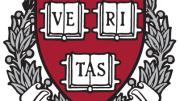With the filing in mid May of its tax return for nonprofit organizations (Form 990) for 2011 (covering the tax year from July 1, 2011, to June 30, 2012—Harvard’s fiscal year 2012), the University has also released information on the compensation paid to Jane L. Mendillo, president and chief executive officer of Harvard Management Company (HMC, which is responsible for investing the endowment) and its highest-paid portfolio managers. The tax filing discloses compensation for other University officials as well, including President Drew Faust. (As noted in May 2010, the basis for such reporting has changed, so the HMC information just released covers calendar year 2011).
Thus, the newly released HMC compensation figures, reflecting annual incentive pay disbursed once each year, span the second half of fiscal 2011 (a year when the endowment achieved an investment return of 21.4 percent, and appreciated in absolute terms by $4.4 billion, to $32 billion, after taking into account both distributions to support Harvard operations and new endowment gifts received) and the first half of fiscal 2012 (a year when the rate of investment return was very slightly negative, -0.05 percent, and the endowment as a whole decreased in value by $1.3 billion, to its reported value of $30.7 billion as of June 30, 2012). The earlier articles linked here provide investment returns by asset class for those reporting periods.
For calendar 2011, HMC reported these total-compensation sums for Mendillo and the five most highly compensated portfolio managers; where the same people were among the most highly compensated HMC personnel in calendar year 2010 (reported last May), that year’s compensation is also shown (in parentheses):
- Jane L. Mendillo, president and CEO: $5.3 million ($3.5 million)
- Andrew G. Wiltshire, head of alternative assets: $6.6 million ($5.5 million)
- Stephen Blyth, head of public markets: $6.2 million ($2.7 million)
- Alvaro Aguirre-Simunovic, natural resources: $5.3 million
- Apoorva K. Koticha, fixed-income global rates: $3.1 million ($4.4 million)
- Marco C. Barrozo, fixed-income global rates: $3.0 million ($2.1 million)
The news release on the results noted that calendar year 2011 was “a period during which HMC recorded exceptionally strong endowment returns.” HMC’s formula provides a base salary, with the large majority (HMC says “over 90 percent”) of compensation varying with investment-managers’ performance. Those variable awards depend on producing investment returns in excess of market benchmarks for the specific category of assets, and sustaining that performance over time: subsequent underperformance results in variable compensation being “clawed back.” Thus, the variable awards in any annual period reflect results over multiple years.
In a statement, University Treasurer James F. Rothenberg, chair of HMC’s board of directors, said, “This compensation system is designed to closely align the interests of the University with its investment professionals. HMC’s market-beating performance in the reporting period once again added value to the resources upon which Harvard depends to fulfill its teaching and research mission.”
Presidential, Administrative, and Decanal Pay
President Drew Faust’s salary for the fiscal year reported in the tax filing was $729,000 (compared to $714,000 in the prior year), plus other compensation of $171,000 (principally attributable to the use of the official presidential residence, Elmwood). Provost Alan Garber’s salary from the time he joined the University, in September 2011, through the end of the year, was $368,000. Other reported salaries, for the executive vice president and various vice presidents, ranged from $579,000 to $265,000. The highest decanal salary reported was Harvard Medical School’s Jeffrey S. Flier, at $571,000.









